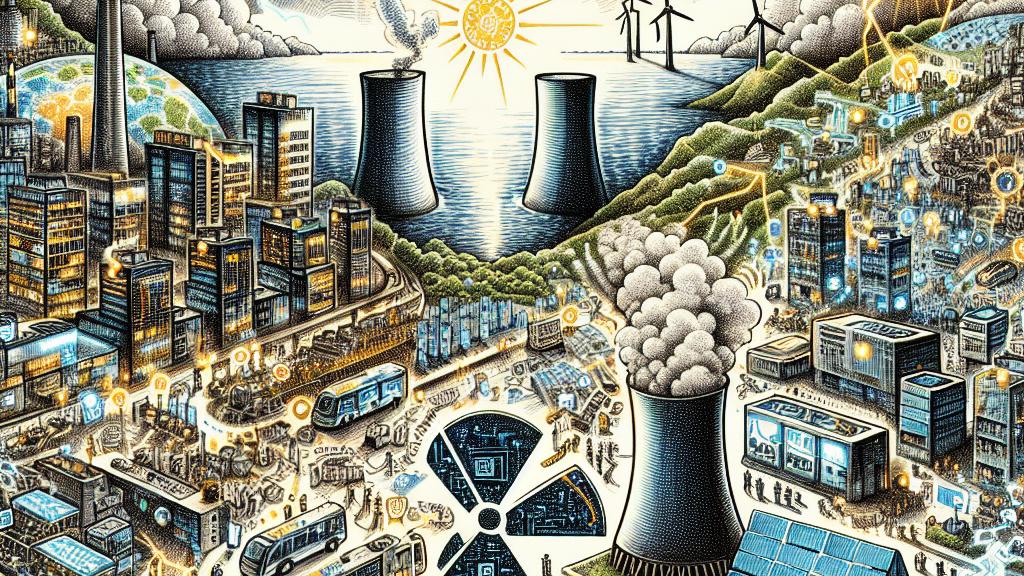Taiwan's Nuclear Power Shift in Response to AI Demand
Overview
- Taiwan's leadership embraces nuclear energy to address soaring electricity demands from the AI industry.
- The rapid expansion of artificial intelligence significantly strains the nation’s energy resources, prompting nuclear energy discussions.
- Political dynamics surrounding nuclear energy are shifting, reflecting both public concerns and pressing national security interests.

Taiwan's Energy Need and the AI Boom
In the bustling technological landscape of Taiwan, the government is making a bold move towards embracing nuclear energy. Premier Cho Jung-tai recently expressed a newfound willingness to explore this option amid the skyrocketing electricity demands generated by the rapidly expanding artificial intelligence sector. Notably, companies like Taiwan Semiconductor Manufacturing Co. (TSMC) are leading the charge, consuming vast amounts of electricity to produce state-of-the-art chips essential for AI-driven applications. This is not just a local issue; globally, the AI industry is sparking urgent conversations about sustainable energy solutions. Many experts warn that relying solely on renewable sources, like solar and wind, may not suffice to meet the relentless demand. Therefore, incorporating advanced nuclear technology emerges as a viable strategy to ensure a stable and secure energy supply, one that can power both the current digital economy and future technological innovations.
Political Context and Nuclear Phase-Out
The political backdrop of Taiwan's nuclear energy policy is rich and complex, shaped by decades of history and public sentiment. The Democratic Progressive Party (DPP), under President Tsai Ing-wen, initiated a controversial phase-out of nuclear energy propelled by fears stemming from the Fukushima disaster in 2011. This catastrophe instigated widespread public protests against nuclear power, significantly diluting its support. However, as Taiwan approaches the closure of its last functional nuclear facility, the urgency to confront this issue is palpable. In the recent presidential elections, opposition parties seized the moment to advocate for the revival of nuclear initiatives, emphasizing energy security in an increasingly uncertain geopolitical environment. This marked a striking shift in public sentiment; polls indicate that many citizens now believe maintaining a nuclear energy framework is crucial not only for energy independence but also for national security as tensions rise with China.
Geopolitical Implications and Future Directions
As concerns about energy security grow, Taiwan's geopolitical landscape necessitates a thorough reassessment of its energy strategy. The risks associated with heavy reliance on imported energy supplies are becoming increasingly urgent. For instance, nuclear power plants have a significant operational advantage, capable of running continuously for up to eighteen months without the need for refueling—unlike the unpredictability that accompanies imported sources. Additionally, major global players, including U.S. tech giants, are investing heavily in cutting-edge nuclear technologies, highlighting an opportunity for Taiwan to modernize its energy infrastructure. By integrating advanced nuclear solutions into its energy strategy, Taiwan can bolster its energy independence while fostering international collaborations that drive innovation. In doing so, Taiwan positions itself not only to secure its energy future but also to thrive amid the rapidly changing global landscape, marking a potential renaissance in its nuclear energy narrative.

Loading...